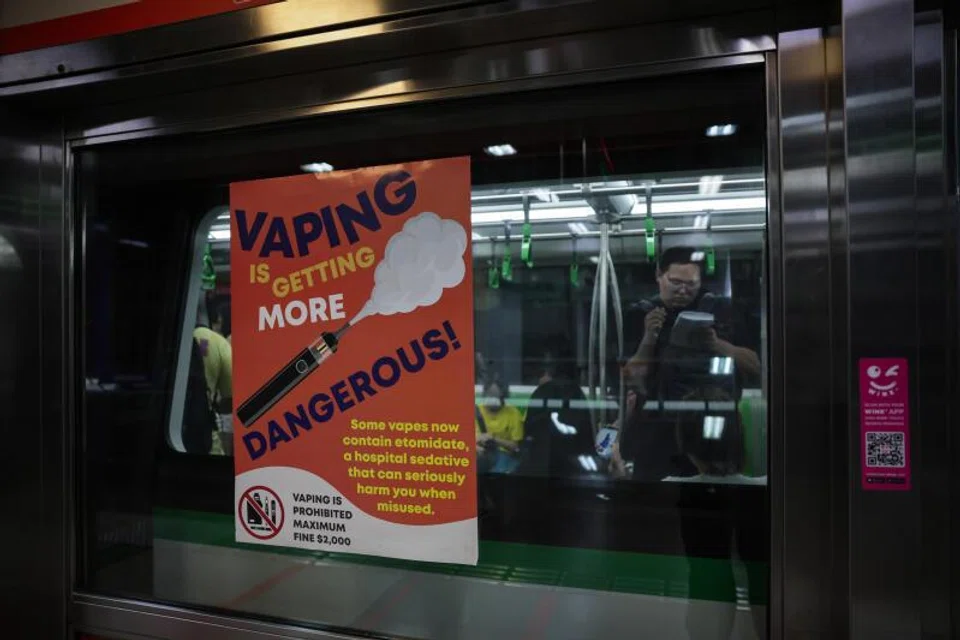
Statement:
1. This article focuses solely on the regulation and commercial issues of e-cigarettes and is intended for readers within the global tobacco industry.This article does not involve analysis or commentary on any political or diplomatic issues.
2. The content of this article may not be quoted for political or diplomatic purposes.
3. The Chinese translation of the referenced U.S. regulatory materials in this article is provided for reference only. All content should be based on the original English text.
[2Firsts Publishes from Shenzhen] As regulatory pressures intensify in the U.S. e-cigarette market, questions loom about the future of an industry grappling with unprecedented scrutiny. Recent developments underscore this shift: Congressman Raja Krishnamoorthi’s December 4 inquiry letters to multiple Chinese manufacturers and U.S. wholesalers, the FDA's December 5 warnings to 115 retailers selling unauthorized e-cigarettes in coordination with state authorities, and the October 22 announcement of a joint FDA-CBP operation that seized unauthorized e-cigarette products valued at approximately $76 million. Together, these actions have placed the industry under intense scrutiny, heightening uncertainty about the U.S. market's trajectory.
These enforcement actions have raised pressing questions among industry stakeholders, including U.S. vaping brands, distributors, and Chinese manufacturers. What are the driving factors behind these measures? How will the regulatory landscape evolve in the coming months? And what steps can industry professionals take to navigate the increasingly complex U.S. policy environment?
At this pivotal juncture, as the regulatory landscape undergoes significant transformation, 2Firsts sought insights from the FDA on the trajectory of these enforcement efforts. In our interview, Jim McKinney, the FDA Press Officer, shed light on these developments, offering critical information and valuable perspectives on the agency’s evolving regulatory agenda.
FDA Prioritizes Accountability Across the E-cigarette Supply Chain
When asked about the FDA’s next steps, agency spokesperson Jim McKinney was unequivocal:
Addressing unauthorized tobacco products throughout the entire supply chain is a top priority for the FDA. To do this, the FDA closely monitors retailer, manufacturer, importer, and distributor compliance with federal tobacco laws and regulations and takes regulatory or enforcement action when violations occur. We remain committed to using the full scope of tools in our regulatory toolbox to ensure entities that make, distribute, or sell illegal tobacco products, especially products that appeal to youth, are held accountable.
McKinney’s remarks highlight two key focal points. The first is the FDA’s commitment to targeting the entire supply chain, which includes retailers, manufacturers, importers, and distributors. Recent enforcement actions reflect this approach, involving both Chinese manufacturers and U.S.-based wholesalers and retailers. The agency has also been explicit in its intention to ensure that all actors in the supply chain are held accountable for violations.
Building on its multi-faceted strategy, McKinney highlighted what the FDA refers to as its 'regulatory toolbox'—a comprehensive suite of measures aimed at curbing unauthorized e-cigarette products. According to information on the agency’s website, this arsenal includes:
- Warning Letters
- Civil Money Penalty (CMP) Complaints
- No-Tobacco-Sale Order (NTSO) Complaints
- Import Alerts
- Seizures, Injunctions, and Criminal Prosecution
As the regulatory landscape shifts, McKinney’s comments underscore the FDA’s comprehensive approach to tackling the proliferation of unauthorized e-cigarette products. By leveraging a broad array of enforcement tools, the agency is signaling its determination to establish accountability and safeguard public health, particularly among youth.
Multi-Agency Task Force Combats Evasion of the Law Using Criminal and Civil Tools
McKinney emphasized the intensified enforcement efforts, noting that multiple federal agencies, including the FDA, the Department of Justice (DOJ), and U.S. Customs and Border Protection (CBP), have joined forces to combat illegal e-cigarette products in the market.
In support of this work, multiple federal agencies – including the FDA, the DOJ, and CBP – recently formed a task force to address the illegal distribution and sale of e-cigarettes. The task force aims to coordinate and streamline efforts on illegal e-cigarettes and utilize all available criminal and civil tools to target companies attempting to evade the law.
According to research by 2Firsts, the task force was officially established on June 10, 2024, when the DOJ and the FDA announced its formation as a strategic response to the growing challenges in regulating the e-cigarette market. Its creation marks a significant shift in the U.S. regulatory landscape, with the task force focusing on illegal e-cigarette distribution and sales across the entire supply chain, including retailers, manufacturers, and wholesalers. The initiative aims to hold all involved parties accountable for violations, especially those that target U.S. youth with products appealing to young consumers.

Recent enforcement actions demonstrate the task force’s effectiveness. On December 5, 2024, the FDA, in collaboration with state authorities, issued warning letters to 115 retailers selling unauthorized e-cigarette products. Just a few months prior, on October 22, 2024, the FDA and CBP jointly seized unauthorized e-cigarette products worth $76 million. These efforts reflect the coordinated actions between federal agencies, which have proven crucial in the fight against the illegal e-cigarette market.
The task force’s work extends beyond these recent actions, with significant past efforts paving the way for its current strategy. Notably, in December 2023, CBP seized over $18 million worth of unauthorized e-cigarettes, underscoring the ongoing collaboration between the FDA and CBP prior to the task force’s establishment.
As the regulatory environment continues to evolve, McKinney’s comments signal that the FDA and its partners are committed to leveraging the full range of enforcement tools to address unauthorized e-cigarette products.
By bringing together multiple federal agencies and utilizing a robust set of enforcement tools, the task force underscores the seriousness with which the U.S. government is tackling illegal e-cigarette products, as regulatory scrutiny of the industry continues to intensify.
Adopting Timely and Impactful Strategies to Navigate Market Changes
Looking ahead, McKinney highlighted the FDA’s Center for Tobacco Products (CTP) five-year strategic plan, emphasizing its significance in shaping the agency’s future efforts:
Moving into the year ahead, the FDA will build on the progress we’ve made in meeting the goals, outcomes, and objectives outlined in the 5-year strategic plan, which was published last year. With regards to the plan’s goals for robust enforcement actions, the FDA will continue efforts to:
1. Enhance educational resources that facilitate voluntary compliance by regulated industry;
2. Pursue timely and impactful compliance and enforcement strategies that adapt to the evolving marketplace;
3. Collaborate with other federal and state agencies on compliance and enforcement strategies.
From McKinney’s remarks, it is clear that the FDA’s priorities in the coming year will center on two key dimensions: education and compliance enforcement. On the enforcement front, the agency aims to focus on adaptability to the dynamic market landscape and on strengthening partnerships with other agencies.
The five-year strategic plan, published by CTP on December 18, 2023, was identified by CTP Director Brian King as one of the center’s major milestones in his article “A Year in Review: FDA’s 2023 Progress in Tobacco Product Regulation.” This plan outlines five overarching goals, with Goal 3 explicitly addressing compliance and enforcement:
Strengthen compliance oversight of the regulated industry by leveraging all available tools, including robust enforcement actions.
Specific outcomes under this goal include ensuring that:
1. Noncompliant tobacco products that appeal to youth, particularly those that violate federal law, are no longer available on the market.
2. The regulated industry is well-informed about how to comply with the law.
The plan represents a comprehensive roadmap for the FDA’s approach to tobacco product regulation, reflecting the agency’s commitment to both education and enforcement as cornerstones of its strategy. McKinney’s comments reinforce this dual focus, signaling the FDA’s intent to balance proactive engagement with the industry and stringent oversight to safeguard public health, particularly in protecting youth from harmful tobacco products.
As the five-year plan enters its first year of implementation, it sets the stage for a transformative period in tobacco regulation, one that aims to adapt to market changes while ensuring robust accountability across the regulated industry.

FDA Enhances Educational Resources to Boost Transparency in the PMTA Process
2Firsts conveyed to the FDA the compliance challenges currently faced by e-cigarette businesses. Many companies struggle to fully understand U.S. regulatory policies, including the PMTA process, and the market’s future trajectory, making it difficult to take timely and effective compliance actions. In response, McKinney emphasized to 2Firsts:
The premarket review process remains a cornerstone of the FDA’s efforts, and we continue to work with regulated industry to provide information and resources. These resources include a webpage of PMTA tips, public meetings, scientific memos, and webinars.
McKinney also highlighted to 2Firsts specific initiatives undertaken by the FDA to educate stakeholders on the PMTA process:
1. PMTA Tips: Based on frequently identified issues, the FDA has outlined the required forms and provided tips to help applicants correctly complete them – FDA Tobacco Product Application Tips - Premarket Tobacco Product Applications.
2. Public Meetings: In October 2023, the FDA held a public meeting about the application review process to reiterate our commitment to transparency and to provide an opportunity for stakeholder engagement to improve public understanding of the review process – Premarket Applications: Opportunities for Stakeholder Engagement - A Public Meeting - 10/23/2023.
3. Memos: The FDA has also released several scientific review policy memoranda that provide a snapshot of the FDA’s internal thinking on certain topics within the premarket tobacco review process. The memos provide additional transparency regarding the considerations that different regulatory science disciplines take into account when reviewing a tobacco product application – Regulatory Science Policy Memoranda.
4. Webinars: The FDA hosts a series of webinars and videos on federal tobacco regulations to provide compliance education and information to retailers and small business manufacturers and importers – FDA Tobacco Compliance Webinars.
5. FDA’s Searchable Tobacco Products Database: The FDA’s database—available at www.fda.gov/searchtobacco—provides information on tobacco products that are legal to sell. The FDA also maintains a printable one-page flyer of the e-cigarettes authorized by FDA.
In addition to these resources, CTP's Office of Small Business Assistance can answer specific questions about requirements for small businesses and how to comply with the law. This office also provides online educational resources to help regulated industry understand FDA regulations and policies.
McKinney emphasized: the FDA’s Center for Tobacco Products is open to continued opportunities to further educate and engage with stakeholders, including regarding the PMTA process.
Editorial Note
The United States, the world’s largest e-cigarette market, is facing an unprecedented regulatory crossroads, with its evolving framework creating significant uncertainty for industry players. Recent regulatory actions have intensified this uncertainty, with stakeholders—particularly Chinese manufacturers—closely tracking these developments.
For larger, compliance-driven companies, the shift in regulatory enforcement has prompted a strategic reassessment. Many had previously scaled back their compliance efforts, citing the persistent “bad money drives out good” dynamic that has historically plagued the U.S. e-cigarette market. Now, however, these companies are urgently seeking clarity on the pace and scope of regulatory actions to realign their strategies.
Smaller businesses, often caught in the squeeze of dominant brands now under heightened scrutiny, are grappling with both opportunity and challenge. While they see the evolving market as a potential opening, the path to compliance remains a complex and costly undertaking. Meanwhile, those directly targeted by recent enforcement actions are carefully monitoring the situation, trying to navigate an increasingly hostile regulatory landscape.
In a market that’s shifting rapidly, companies of all sizes are being forced to recalibrate—not only their business models but their approach to compliance itself. As the regulatory environment becomes more stringent, the stakes have never been higher.
2Firsts will continue to closely monitor the events and promptly deliver authoritative information.
Cover Image: Generated by ChatGpt
Tips and comments are welcome at info@2firsts.com or connect with 2Firsts CEO Alan Zhao on LinkedIn.







